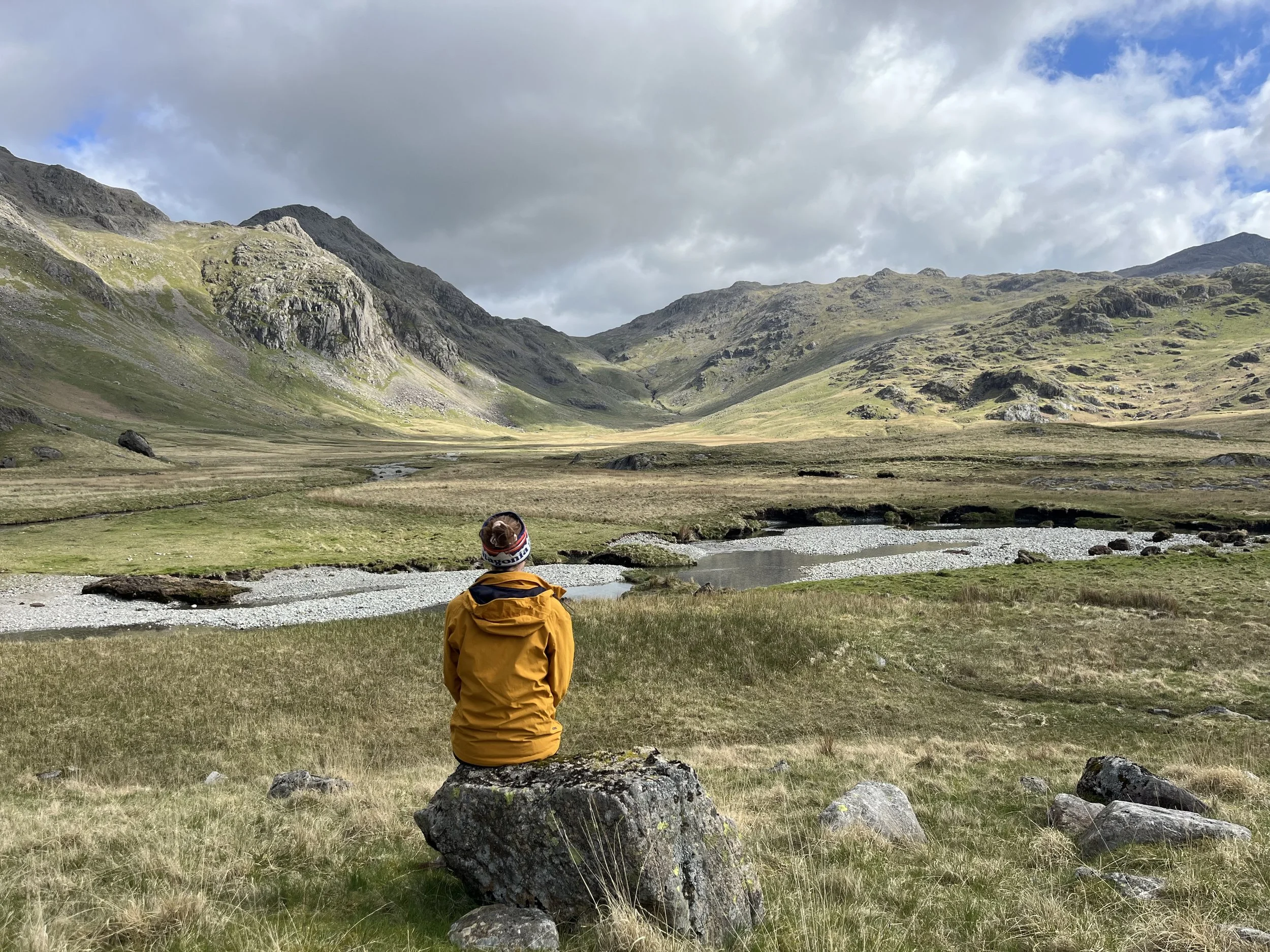Solitude Is the Way to Belonging
“I never found the companion that was so companionable as solitude.” — Henry David Thoreau
Every year, I spend a few days alone in the woods or hills somewhere. Every time, it’s difficult. And every time, I’m deeply grateful I do it.
We can fast from food, from technology, from countless distractions—and we can also fast from people. Solitude is a cleanse, a detox from the psychic noise of daily life.
But solitude is not just about being alone. It is an intentional practice—one of dedicating undivided attention to ourselves, creating space to listen, and sifting through what is truly ours from what we’ve merely inherited or absorbed.
If, as I wrote in my last blog, slow is the way to fullness, then solitude is the way to belonging. Slowness is about immersion. Solitude is about disruption—breaking patterns that keep us from seeing the world afresh. It is a path of revelation, rather than routine. All that wants to be known can be known in the simplicity of our own company.
Solitude is a departure from the familiar so that we may see the unfamiliar. We are each one of a kind—but unless we step away from the crowd, we cannot fully appreciate who we uniquely are. Nor can we fully appreciate others for who they are.
We have, in our society, a huge aversion to solitude. We also have an epidemic of loneliness and I wonder if these two are connected somehow?
It’s easy to blame this epidemic on the breakdown of community, and that certainly plays a part. But I believe something deeper is at work. We live in an ego-centric society, not a soul-centric one. No wonder solitude has been framed as something to endure rather than embrace. We mistake busyness for connection, routine for belonging. And we have become strangers to wild nature.
But how can we hear the voice of soul if we do not hear the voice of nature? Wild nature is part of soul itself.
Loneliness, then, is not just a lack of connection with others—it is a separation from ourselves. No amount of socialising, conforming, rebelling, distracting, or external validation can fill the emptiness that this disconnection brings. And yet, these are the very things we often turn to as self-medication.
Loneliness is a contraction, solitude is an expansion. Solitude can hold loneliness, just as the sky holds the storm.
We can mistake loneliness as something we are, when in fact, it is only a part of us—a voice from the deeper Self. A voice that, first and foremost, needs to be heard by ourselves, rather than drowned out by busyness.
Blaise Pascal famously said, “All of humanity’s problems stem from man’s inability to sit quietly in a room alone.”
I would amend this slightly: All of humanity’s problems stem from our failure to spend time in solitude with the natural world. I know mine do.
My teacher, John Milton, used to say that ALONE means ALL-ONE. We are never truly alone - everything is connected.
You will know this as a visceral truth, if you don’t already, when you begin a practice of solitude in nature. You will realise that solitude is not about separation, but about integration.
To belong means to properly relate to; to go along with. In solitude, we bring the hidden, protesting, and self-sabotaging parts of ourselves into right relationship. We begin to get along with ourselves. From this inner kinship, we discover kinship with others, with the land, with life itself.
This is life-changing—because we recognise we belong anywhere.
Solitude is the way to belonging.
Nature teaches us this effortlessly. Because in nature, everything belongs. Everything is in right relationship to itself and to all else. As if by osmosis, this knowing becomes part of us.
So, my invitation is this: begin a practice of solitude—intentional, dedicated time with yourself and as much as you can do it with nature as your companion. It can be as little as an hour a week. This is an ancient path, walked by truth seekers across cultures and time, we lose it at our peril.
If you truly seek your path and your essence, solitude is not optional - it is essential.
